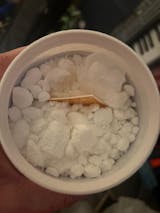
Performance optimization during exercise needs a well-planned nutrition approach which includes electrolytes and carbohydrates consumption. Learning about their activation functions enables better exercise stamina through fat reduction and better workout results and reduced fatigue.
Electrolytes: The Unsung Heroes of Muscle Function
Various bodily processes rely on electrolytes which include sodium, potassium, calcium, and magnesium because these minerals possess electric charges. The human body loses electrolytes during physical activity, particularly when exercising in hot or humid environments through sweat. Replenishing these is crucial because:
-
The proper functioning of muscle contractions requires electrolytes to work. The performance suffers due to muscle weakness or cramps when electrolytes remain unbalanced.
-
The minerals play an essential role in maintaining fluid balance through which cells stay hydrated to perform optimally.
-
Electrolytes enable the transmission of nerve signals which control muscle movements through coordination.
The best way to preserve electrolytes during exercise involves consuming sports drinks or electrolyte supplements that contain essential minerals. Your workout can benefit from eating foods that contain high electrolyte content such as bananas and yogurt together with melons and apples.
Carbohydrates: The Primary Energy Source
Exercise requires carbohydrates as the primary fuel source that the body selects. The body stores glycogen in muscles and the liver until it breaks down this substance into glucose which powers physical activity. The depletion of glycogen reserves throughout prolonged or intense exercise causes the body to experience fatigue. To sustain energy levels:
-
Before physical activity, consume complex carbohydrates in a substantial meal that allows enough time to build up muscle glycogen stores.
-
The consumption of 30-60 grams of carbohydrates per hour during workouts longer than an hour helps preserve blood glucose levels and postpones fatigue symptoms.
-
Recovery from exercise happens best when you consume carbohydrates right after your workout within thirty minutes to restore glycogen stores.
The ideal sources of carbohydrates during exercise consist of sports drinks and energy gels as well as raisins or energy bars which offer quick digestibility.
Combining Electrolytes and Carbohydrates
Active athletes who combine electrolytes with carbohydrates gain double benefits from sustaining their energy stores and staying adequately hydrated during exercise. Sports drinks exist on the market with a dual functionality which provides both carbohydrates for fuel and electrolytes to restore those lost through sweating. By working together, these substances prevent body dryness along with preserving energy release, which results in improved athletic ability and prolonged physical capabilities.
Conclusion
The performance of athletes depends heavily on proper nutrition throughout their workout period. The sport performance of athletes remains optimal when they choose the proper electrolytes and carbohydrates replacement strategy for exercise because this approach stops fatigue and enhances performance levels. Each athlete must receive their specific dosage during the workout based on their individual performance needs and the exercise intensity to gain maximum benefits.

